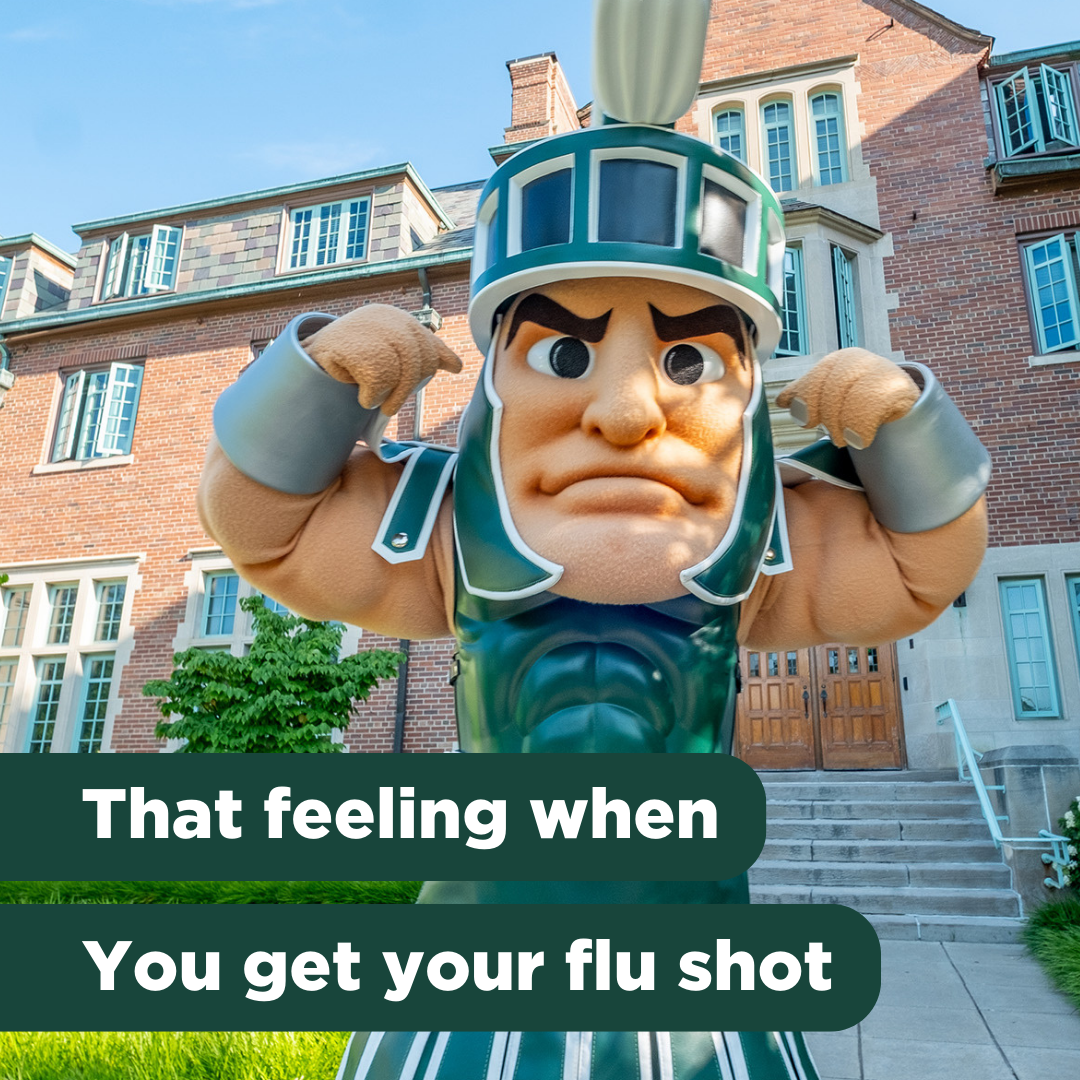Colds & Flu
Colds and flu spread through college campuses often. There are ways to protect yourself from getting them and there are ways to help yourself recover quickly. Take action to stay healthy this semester!
Best Prevention for Colds and Flu
- Wash your hands with soap and water - clean hands save lives. (Seriously.)
- Get a flu shot every year.
- Avoid sick people, and avoid touching your face.
- If you are sick with a flu-like illness, CDC recommends that you stay home for at least 24 hours after your fever is gone (except to get medical care or other necessities).
 Flu shots are available by appointment at Olin Health Center.
Flu shots are available by appointment at Olin Health Center.
- First, call to schedule an appointment (517) 353-4660. This is a 'nurse visit' and does not count against the "three visits".
- The flu shot is covered under the Student Health Insurance Plan and for many other insurance plans. Remember, it's always best to check with your insurance company about what is and isn't covered. Bring your insurance card so we can bill your insurance for the flu vaccine.
- For students without insurance, a flu shot costs $67, unless a student chooses to pay the day of the appointment. Students can request prompt pay at the time of the appointment to get a flu shot for $25.
Flu shots are also available at many local pharmacies such as the MSU Health Care Pharmacy, CVS and Walgreens.
On September 26, 2022, University Physician Michael Brown shared an email with students, as well as faculty and staff, encouraging them to get their flu shot — and where to go on campus to get one. Click the buttons below to read his messages.
Message to Students Message to Faculty and Staff
Self-Care and Colds vs. Flu
Over 40% of MSU students reported having colds or flu last year. Learn how to care for yourself and do your part to prevent the spread of colds and flu.
- Review our Flu Facts Brochure to learn how to prevent, recognize, and treat the flu; and how to tell if it is a cold, flu, or something more.
- Common colds usually last 7-10 days.
- There is no cure for the cold, and most people do not need to visit the doctor with a cold.
- To feel better, get lots of rest, drink plenty of fluids, and use over-the-counter medicines or home remedies for symptom relief.
- You should see a medical provider when:
- Temperature of 100.4 F or higher
- Cough with bloody mucus
- Shortness of breath or trouble breathing
- Symptoms that last more than two weeks
- Flu symptoms usually come on suddenly and flu can cause mild to severe illness, and at times can lead to death.
- Flu can be treated with antiviral drugs, and work best when taken within two days of onset of illness.
- Most people will recover from flu in a few days to less than two weeks.
- MSU Health Services Home Care Guidance for Flu and Influenza-Like Illness (ILI)
- Warning signs of flu requiring immediate medical care:
- Difficulty breathing or shortness of breath
- Persistent pain or pressure in the chest or abdomen
- Persistent dizziness, confusion, inability to arouse
- Seizures
- Severe muscle pain
- Severe weakness or unsteadiness
- Fever or cough that improves but then returns or worsens
- Worsening of chronic medical conditions

